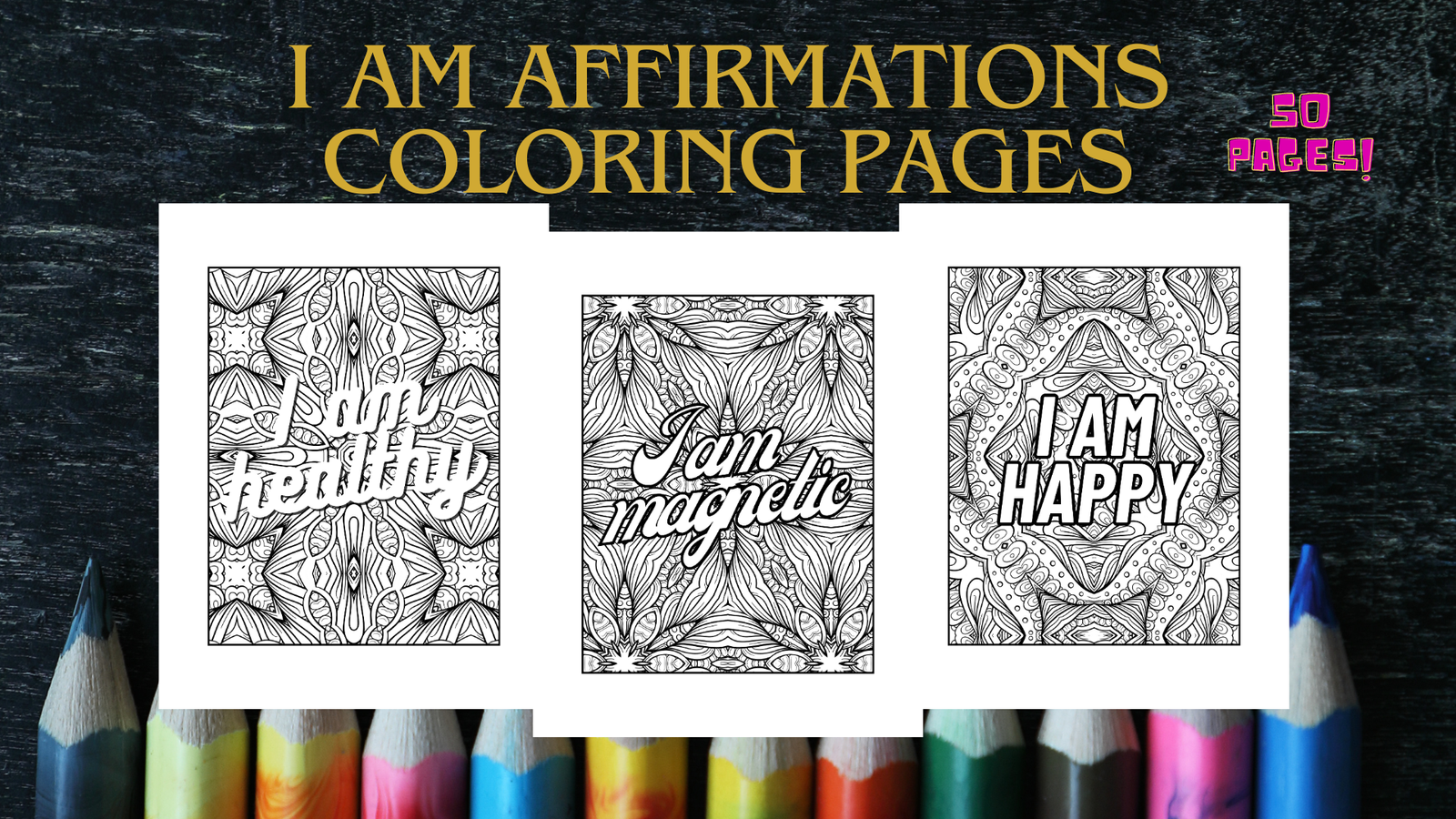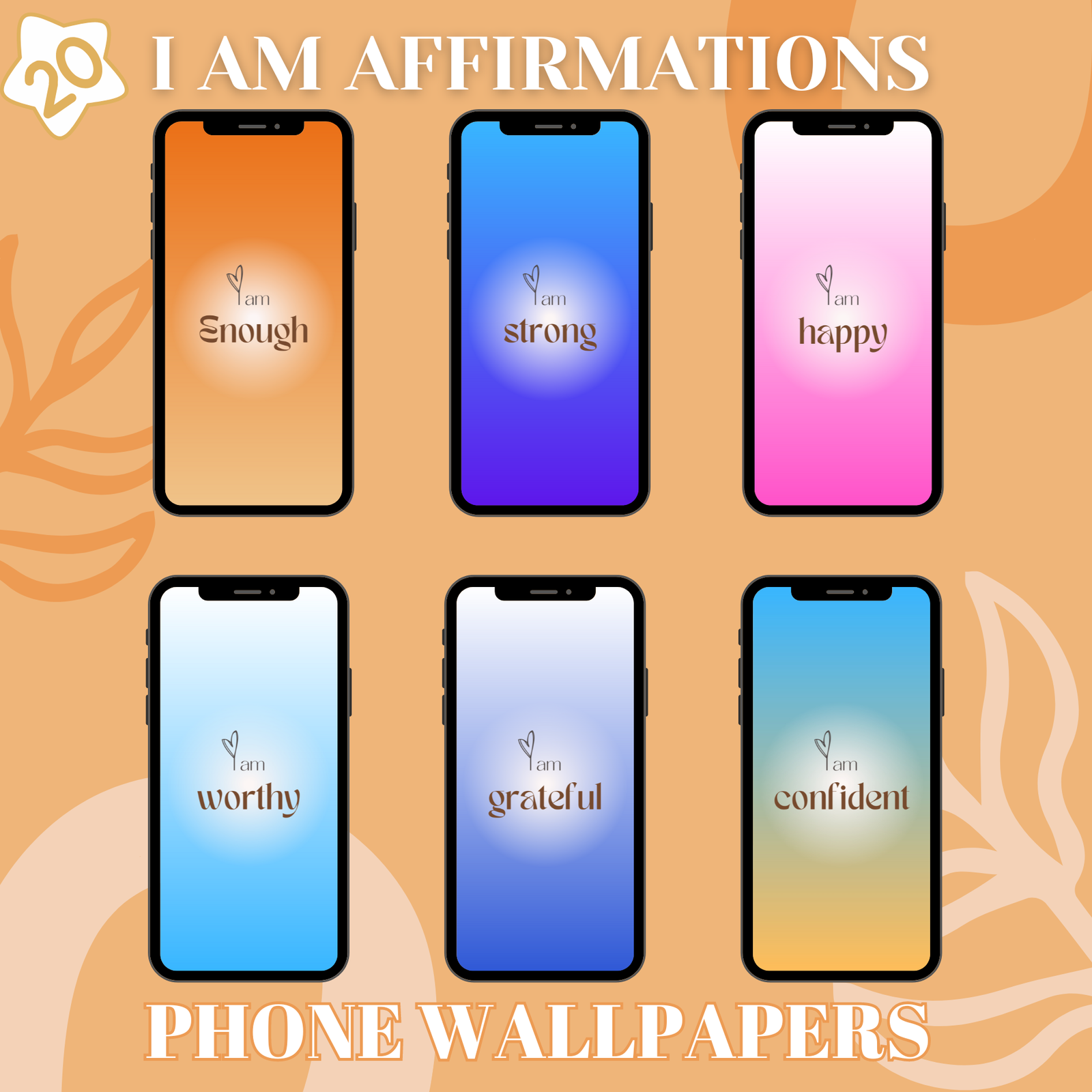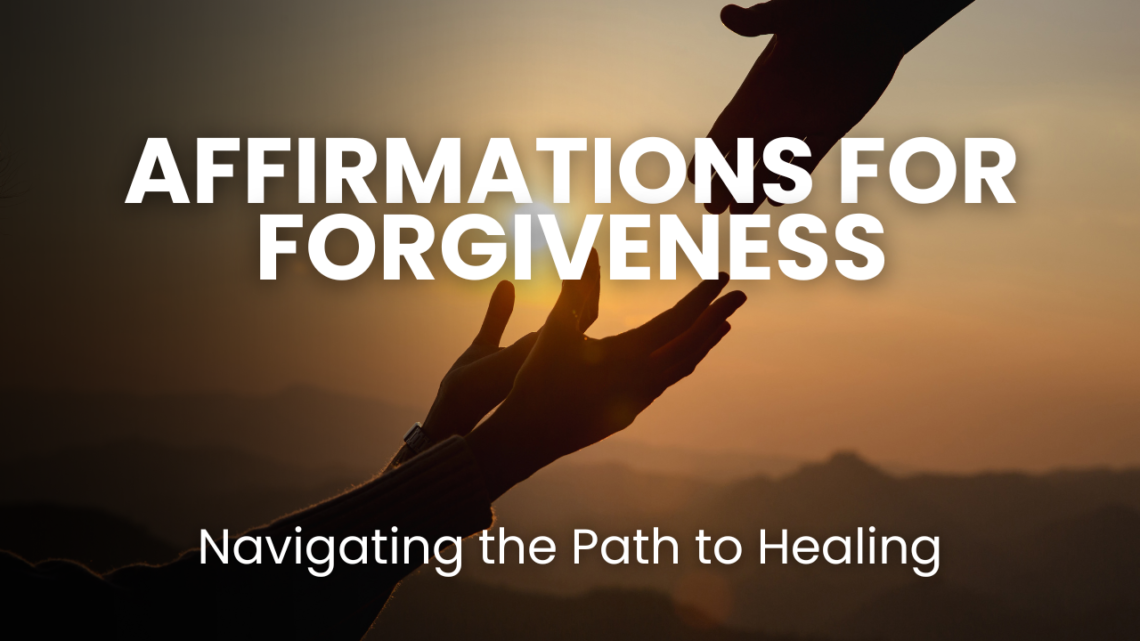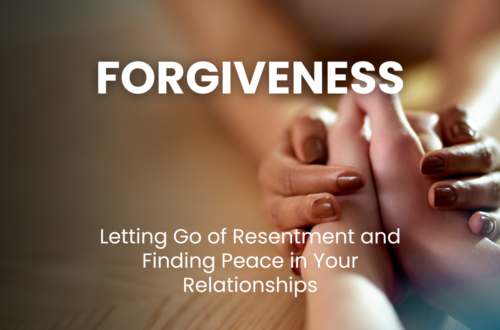Forgiveness is often seen as a gift we give to others, but in reality, it’s a profound act of self-liberation. The process of forgiveness can be complex and deeply personal, involving emotions such as anger, resentment, and guilt. Learning to forgive oneself and others is crucial for emotional healing and personal growth. In this blog post, we will explore the transformative power of forgiveness and provide a collection of affirmations designed to support you on this journey.

Understanding Forgiveness
What is Forgiveness?
Forgiveness is a multifaceted concept that transcends simple definitions; it embodies emotional, psychological, and even spiritual dimensions. At its core, forgiveness is an intentional and conscious decision to let go of feelings of resentment, anger, or vengeance that arise from being hurt or wronged by someone else. However, the process and implications of forgiveness can be far more nuanced than a straightforward act.
The Essence of Forgiveness
Forgiveness involves several key elements that define its essence:
- A Choice: Forgiveness is fundamentally a choice, not a feeling. It requires an active decision to release the negative emotions associated with a past event. This choice empowers individuals to reclaim control over their emotional responses rather than allowing hurtful experiences to dictate their feelings.
- Acknowledgment: It’s crucial to acknowledge the hurtful action or betrayal and recognize its impact on one’s life. This acknowledgment doesn’t mean condoning the behavior or dismissing the pain; rather, it signifies a willingness to confront the reality of the situation.
- Letting Go: Forgiveness involves letting go of the desire for revenge or retribution. This process can be challenging, as the instinct to hold onto anger is often strong. However, true forgiveness liberates individuals from the emotional burden of resentment, allowing them to move forward.
- Healing: At its heart, forgiveness is a healing process. It can lead to emotional freedom and personal growth, enabling individuals to cultivate compassion for themselves and others. By forgiving, individuals often find a sense of peace and closure that fosters overall well-being.
Forgiveness vs. Reconciliation
It’s essential to differentiate between forgiveness and reconciliation, as they are often confused.
- Forgiveness can occur independently of reconciliation. One can forgive someone without resuming a relationship or restoring trust. This is particularly relevant in cases of abuse or betrayal, where returning to a previous relationship may not be safe or healthy.
- Reconciliation, on the other hand, involves rebuilding a relationship and restoring trust. It requires both parties to actively participate in the healing process, which may involve open communication, apologies, and mutual understanding. While reconciliation can be a positive outcome of forgiveness, it is not a necessary condition for forgiveness to take place.
The Importance of Context in Forgiveness
Understanding the context in which forgiveness occurs is crucial. Forgiveness may look different depending on the relationship dynamics, the nature of the offense, and individual emotional responses. For example, forgiving a close friend for a minor misunderstanding may be relatively straightforward, while forgiving a family member for a significant betrayal can be more complex and emotionally charged.
Additionally, cultural and societal norms influence perceptions of forgiveness. In some cultures, forgiveness is emphasized as a virtue and an essential aspect of interpersonal relationships, while in others, the focus may lean toward justice and accountability.
Self-Forgiveness: A Unique Aspect
While much of the discussion around forgiveness centers on forgiving others, self-forgiveness is equally important. Self-forgiveness involves letting go of feelings of guilt, shame, or self-blame for past actions. It requires individuals to recognize their humanity, understand that everyone makes mistakes, and cultivate self-compassion.
Self-forgiveness can be particularly challenging, as individuals may hold themselves to high standards or internalize their failures. However, learning to forgive oneself is a vital aspect of emotional healing and personal growth. It allows individuals to acknowledge their mistakes, learn from them, and move forward without being held captive by their past.
The Emotional Landscape of Forgiveness
Forgiveness does not happen in isolation; it is deeply intertwined with various emotional states. The journey to forgiveness often involves navigating through a spectrum of emotions, including:
- Anger and Resentment: These emotions are typically the first responses to being hurt. They can serve as protective mechanisms, shielding individuals from further pain. Acknowledging and processing these feelings is crucial in moving toward forgiveness.
- Grief and Loss: Forgiving someone may also entail grieving the loss of what the relationship once was or the trust that has been broken. This grief is a natural part of the healing process and should be honored.
- Compassion and Understanding: As individuals move closer to forgiveness, they often develop a greater sense of compassion and empathy for both themselves and the person who caused the hurt. Understanding the circumstances that led to the behavior can help shift perspectives and facilitate forgiveness.
- Freedom and Empowerment: Ultimately, the act of forgiveness can lead to a profound sense of freedom and empowerment. By releasing the emotional hold of past grievances, individuals can reclaim their lives and emotional well-being.
The Spiritual Dimension of Forgiveness
For many, forgiveness also carries a spiritual significance. Many spiritual traditions emphasize the importance of forgiveness as a pathway to peace, enlightenment, and connection with a higher power. In these contexts, forgiveness may be viewed not only as an act of letting go but also as a means of spiritual growth and transformation.
Why is Forgiveness Important?

Forgiveness plays a vital role in our emotional and mental well-being, influencing how we navigate relationships and cope with life’s challenges. Understanding its importance can illuminate why making the choice to forgive—both ourselves and others—is crucial for personal growth and healing. Here are several compelling reasons why forgiveness matters:
Emotional Release and Relief
One of the most significant benefits of forgiveness is the emotional release it provides. Holding onto grudges, anger, or resentment can lead to a heavy emotional burden that weighs on individuals, manifesting as stress, anxiety, or even depression. Forgiveness acts as a catalyst for emotional relief, allowing individuals to let go of these negative emotions and experience a lighter, more positive emotional state. This release can lead to improved mental clarity and an overall sense of well-being.
Health Benefits
Research has consistently shown that forgiveness can have profound effects on physical health. Studies indicate that individuals who practice forgiveness experience lower levels of stress, reduced blood pressure, and improved immune function. The physiological benefits of forgiveness stem from its ability to lower stress hormones and promote relaxation, leading to better overall health. Forgiveness may also reduce the risk of chronic health issues, such as heart disease and other stress-related conditions, underscoring its importance for holistic well-being.
Enhancing Relationships
Forgiveness is crucial for maintaining healthy relationships. When individuals choose to forgive, they pave the way for rebuilding trust and communication, which are foundational to any strong relationship. Forgiveness allows for the possibility of deeper connections, as it encourages empathy and understanding. Even if a relationship cannot be restored to its previous state, the act of forgiveness can foster a sense of closure, allowing both parties to move forward with a clearer conscience.
Fostering Compassion and Empathy
Engaging in the process of forgiveness cultivates greater compassion and empathy. As individuals work through their feelings of hurt and betrayal, they often begin to recognize the shared humanity in both themselves and the person who caused the pain. This shift in perspective allows for a deeper understanding of others’ actions, often rooted in their struggles or vulnerabilities. By fostering compassion, forgiveness can lead to a more empathetic approach to future interactions, enhancing social connections and community bonds.
Breaking Cycles of Hurt
Forgiveness is essential in breaking the cycles of hurt and retribution that can perpetuate conflict and discord. When grievances go unaddressed, they can fester and lead to ongoing resentment, creating a toxic environment for all involved. Choosing forgiveness interrupts this cycle, promoting healing and understanding instead of retaliation. This shift is particularly important in families and communities, where patterns of hurt can echo through generations. By prioritizing forgiveness, individuals contribute to a culture of peace and healing.
Personal Empowerment and Growth
The act of forgiving is a powerful demonstration of personal empowerment. It reflects a choice to reclaim one’s narrative and emotional state, rather than allowing past hurt to dictate one’s present and future. This process of empowerment fosters personal growth, encouraging individuals to develop resilience and a deeper understanding of themselves. As people learn to navigate the complexities of forgiveness, they often emerge stronger and more capable of handling life’s challenges, cultivating a mindset of growth and possibility.
Spiritual Growth and Well-Being
For many, forgiveness is a significant aspect of spiritual well-being. It can facilitate a deeper connection with oneself and others, fostering a sense of peace and alignment with one’s values. In various spiritual traditions, forgiveness is seen as a path toward enlightenment and a means of transcending personal grievances. This spiritual dimension can enrich individuals’ lives, providing a sense of purpose and connectedness that goes beyond the immediate act of forgiving.
Promoting a Positive Outlook on Life
Embracing forgiveness can shift one’s perspective on life. It encourages a focus on healing rather than harm, fostering a more positive outlook. When individuals let go of grudges, they often find that they can approach life’s challenges with greater optimism and resilience. This positive mindset can open doors to new opportunities, relationships, and experiences that may have been overshadowed by lingering resentment.
Encouraging Mindfulness and Presence
The journey of forgiveness encourages mindfulness—an awareness of the present moment without judgment. By focusing on the act of forgiving, individuals learn to live in the moment rather than being consumed by past grievances. This mindfulness can enhance overall quality of life, enabling individuals to appreciate their current experiences without the weight of past hurts clouding their judgment.
The Misconceptions About Forgiveness
Despite its profound significance and benefits, forgiveness is often misunderstood. These misconceptions can hinder individuals from embracing the process, leading to missed opportunities for healing and personal growth. Here, we’ll explore some common misconceptions about forgiveness and clarify what forgiveness truly entails.
Forgiveness Means Forgetting
One of the most pervasive myths about forgiveness is that it requires forgetting the offense. Many believe that if they truly forgive someone, they should be able to erase the memory of the hurtful action entirely. In reality, forgiveness does not necessitate forgetting; instead, it involves acknowledging the hurt while choosing to let go of the associated negative feelings. Remembering the event can be essential for personal growth and learning, allowing individuals to navigate future relationships and situations with greater awareness.
Forgiveness Equals Condemnation or Acceptance
Another misconception is that forgiveness implies condoning or excusing the behavior that caused harm. Some individuals fear that forgiving someone means they are accepting or approving of the offense, which can feel like a betrayal of their feelings. However, true forgiveness does not mean accepting the wrongdoing; rather, it is about releasing the emotional grip that resentment and anger hold over an individual. It is possible to forgive someone while still holding them accountable for their actions.
Forgiveness is a One-Time Event
Many people view forgiveness as a singular event—an action that, once taken, concludes the process. In reality, forgiveness can be an ongoing journey. Depending on the severity of the offense and the emotional aftermath, individuals may find themselves revisiting feelings of hurt and resentment over time. This cyclical nature of forgiveness is normal and requires patience and self-compassion. It’s essential to recognize that it’s okay to struggle with forgiveness and that the process may take longer for some than for others.
Forgiveness is Only for Others
Some may believe that forgiveness is solely about the person who caused harm and that it serves their needs. This misconception can prevent individuals from understanding that forgiveness is primarily a gift to oneself. While it may seem that forgiving someone releases them from responsibility, it actually liberates the forgiver from the emotional burden of carrying resentment. By focusing on their own healing, individuals can reclaim their emotional power and well-being, demonstrating that forgiveness is ultimately a self-directed process.
Forgiveness Requires Reconciliation
As previously mentioned, many people confuse forgiveness with reconciliation. They may believe that forgiving someone necessitates resuming a relationship or restoring trust. While reconciliation can be a desired outcome in some cases, it is not a requirement for forgiveness. Individuals can forgive without returning to the previous dynamics of a relationship, particularly in situations where trust has been irrevocably damaged or where safety is a concern. Recognizing this distinction allows individuals to forgive at their own pace without feeling pressured to reconcile.
Forgiveness is a Sign of Weakness
Some may perceive forgiveness as a weakness or a lack of assertiveness. This misconception stems from the belief that holding onto anger and resentment demonstrates strength or righteousness. In reality, forgiveness takes immense courage and emotional strength. It requires individuals to confront their pain and choose vulnerability over defensiveness. By actively engaging in the process of forgiveness, individuals demonstrate resilience and a commitment to their own well-being.
Forgiveness is Conditional
Another common misconception is that forgiveness is conditional upon an apology or acknowledgment from the person who caused harm. While a sincere apology can facilitate the forgiveness process, it is not a prerequisite. Many individuals find it necessary to forgive even when the offender has not recognized their wrongdoing or offered an apology. The act of forgiving can occur independently of the other person’s actions, highlighting that forgiveness is ultimately about the forgiver’s journey toward healing and emotional freedom.
Time Heals All Wounds, So Forgiveness Isn’t Necessary
Some believe that over time, the pain of an offense will naturally dissipate, rendering forgiveness unnecessary. However, while time can help lessen the intensity of emotional pain, it does not inherently lead to forgiveness. Unresolved feelings can linger, leading to ongoing resentment and emotional distress. Forgiveness is an active process that requires intentionality and reflection, rather than a passive waiting game. Addressing feelings of hurt directly can lead to more profound healing and emotional well-being.
Forgiveness is a Linear Process
Many individuals envision forgiveness as a straightforward, linear path—one that follows a clear progression from hurt to healing. In reality, forgiveness is often nonlinear and can involve reliving emotions, setbacks, and moments of doubt. Individuals may find themselves oscillating between feelings of forgiveness and resentment as they navigate their emotional landscape. Understanding that forgiveness is rarely a tidy process can help individuals embrace the complexity of their feelings without judgment.
The Journey of Forgiveness

The journey of forgiveness is often complex and deeply personal, requiring individuals to navigate their feelings and thoughts as they work towards healing. While every person’s experience with forgiveness is unique, certain steps can guide individuals through this transformative process. Here, we explore the key steps in the journey of forgiveness, providing insights and practices to help facilitate each stage.
Acknowledgment of Feelings
The first step in the journey of forgiveness is acknowledging the feelings associated with the hurt. It is essential to recognize and validate emotions such as anger, sadness, betrayal, or disappointment. Suppressing these feelings can lead to emotional distress and hinder the healing process. To effectively acknowledge feelings:
- Reflect on the specific emotions you are experiencing and the events that triggered them. Journaling can be an effective tool for this reflection.
- Allow yourself to feel your emotions without judgment. Understand that experiencing pain is a natural response to being hurt.
- Express your feelings in a constructive manner, whether through conversations with trusted friends, therapy, or creative outlets like art or writing.
Understanding the Impact of the Offense
Once you have acknowledged your feelings, the next step is to understand the impact of the offense on your life. This involves reflecting on how the hurt has affected your emotional and mental state, as well as your relationships and daily life. Consider the following:
- Identify the ways in which the offense has influenced your thoughts, feelings, and behaviors. Have you changed how you interact with others or view yourself?
- Assess the long-term effects of holding onto resentment. How has it impacted your well-being, health, and quality of life?
- Recognize any patterns in your reactions to similar situations. Understanding these patterns can provide insight into your emotional responses and help you break cycles of hurt.
Empathy and Perspective-Taking
Developing empathy for the person who hurt you is a crucial step in the forgiveness process. This does not mean excusing their behavior but rather seeking to understand their motivations, struggles, or circumstances. To cultivate empathy:
- Consider their perspective: Reflect on what might have led them to act in a hurtful way. Were they facing challenges or emotional pain themselves?
- Acknowledge shared humanity: Recognize that everyone makes mistakes and has flaws. This understanding can soften feelings of anger and resentment.
- Practice compassion: Engage in exercises that promote compassion for yourself and others. This could include loving-kindness meditation, which encourages goodwill towards oneself and those who have caused harm.
Deciding to Forgive
The decision to forgive is a conscious choice that can mark a turning point in your journey. This decision may not come easily, and it often requires time and reflection. Consider the following:
- Weigh the benefits of forgiveness: Reflect on how forgiveness could positively impact your emotional health, relationships, and overall quality of life. What would letting go of resentment allow you to gain?
- Commit to the process: Understand that forgiveness is a journey, not a destination. Decide to engage actively in this journey, recognizing that it may involve ups and downs.
- Set intentions: Create affirmations or intentions that resonate with your desire to forgive. This could involve phrases such as “I choose to let go of resentment and embrace healing” or “I am open to the possibility of forgiveness.”
Letting Go of Resentment
Releasing resentment is a critical aspect of forgiveness. This step involves consciously choosing to let go of negative emotions tied to the offense. To facilitate this process:
- Practice mindfulness: Engage in mindfulness exercises that focus on the present moment. Techniques such as deep breathing or meditation can help you observe and release negative emotions without becoming overwhelmed.
- Visualize release: Imagine physically letting go of the resentment, whether through visualization techniques or physical actions (like writing down feelings and discarding the paper).
- Engage in positive activities: Distract yourself with activities that bring joy or fulfillment, such as hobbies, exercise, or spending time with loved ones. This helps shift focus away from negative feelings.
Seeking Closure and Moving Forward
Achieving closure is essential for moving forward in your life. This step may involve recognizing the lessons learned from the experience and determining how to apply these insights in the future. Consider the following:
- Reflect on the experience: Ask yourself what you have learned from this situation. How has it shaped your perspective on relationships, trust, and communication?
- Establish boundaries if necessary: If the offense occurred within a relationship that continues to impact your life, consider setting healthy boundaries to protect yourself while maintaining a degree of distance from the hurt.
- Focus on future growth: Embrace the idea of moving forward with a renewed sense of self and purpose. Engage in activities that promote personal development, such as setting new goals or exploring new interests.
Maintaining Forgiveness
Forgiveness is not always a one-time act but a continual practice. It is essential to be mindful of your feelings and to revisit the decision to forgive as needed. To maintain forgiveness:
Practice gratitude: Cultivate an attitude of gratitude by focusing on the positive aspects of your life. This can help shift your perspective away from negative emotions and reinforce your commitment to forgiveness.
Check in with yourself: Regularly assess your emotional state regarding the offense. If feelings of resentment resurface, revisit the earlier steps in your journey to reaffirm your commitment to forgiveness.
Engage in ongoing self-care: Prioritize practices that nurture your emotional health, such as therapy, meditation, exercise, and social connections.
Affirmations for Forgiveness
Using affirmations can be a powerful tool in your journey toward forgiveness. Affirmations are positive statements that help to reshape your thoughts and beliefs. When it comes to forgiveness, they can assist in reframing your mindset, fostering compassion, and promoting healing.



Affirmations for Forgiving Others
- “I choose to forgive those who have wronged me; their actions no longer hold power over my life.”
- “I release the burden of resentment and open my heart to healing.”
- “Forgiveness is a gift I give to myself, allowing me to move forward in peace.”
- “I understand that everyone makes mistakes; I am willing to let go.”
- “I embrace the lessons learned from my experiences and choose to grow from them.”
- “I release all negativity associated with my past, making space for positivity and love.”
- “I forgive not only for others but also for my own peace of mind.”
- “I recognize the humanity in others and choose compassion over anger.”
- “With each breath, I release anger and invite forgiveness into my heart.”
- “Forgiving others is a step towards my own healing and liberation.”
Affirmations for Self-Forgiveness
- “I forgive myself for past mistakes; they do not define my worth.”
- “I am worthy of love and compassion, both from myself and others.”
- “I acknowledge my imperfections and embrace my journey of growth.”
- “I release feelings of guilt and shame, understanding that I am doing my best.”
- “Every day is an opportunity for a fresh start; I choose to forgive myself.”
- “I am learning and evolving, and that is part of being human.”
- “I embrace self-compassion, treating myself with the kindness I deserve.”
- “I am not my past; I am the sum of my experiences and choices.”
- “With each affirmation, I cultivate forgiveness and love within myself.”
- “I am deserving of forgiveness, and I choose to offer it to myself.”



Cultivating Compassion Through Forgiveness
Compassion is an essential aspect of the human experience, allowing individuals to connect with others on a deeper level. It involves understanding and empathizing with the feelings of others, especially during difficult times. When we engage in the process of forgiveness, we also create opportunities to cultivate compassion, both for ourselves and for those who have caused us pain. This section explores how forgiveness can foster compassion, the practices that enhance this connection, and the benefits of developing a compassionate mindset.
Understanding Compassion and Its Role in Forgiveness

Compassion is more than just sympathy; it is an active response to suffering that involves recognizing the emotional state of others and responding with care and kindness. In the context of forgiveness, compassion allows us to:
- See Beyond the Offense: When we cultivate compassion, we can look beyond the hurtful actions of others to understand the circumstances that may have led to their behavior. This broader perspective helps us recognize that everyone has struggles, vulnerabilities, and reasons behind their actions.
- Foster Empathy: Compassion and empathy go hand in hand. By cultivating compassion, we develop a deeper understanding of others’ feelings, which can make it easier to forgive. When we can empathize with the pain that others might be experiencing, we can soften our hearts and let go of grudges.
- Promote Healing: Compassion is a healing force, both for the giver and the receiver. As we practice compassion in our forgiveness journey, we not only help others feel understood and cared for, but we also experience emotional release and healing ourselves.
Practices for Cultivating Compassion
Cultivating compassion through forgiveness involves intentional practices that allow us to connect with our emotions and the emotions of others. Here are some effective methods to develop compassion during the forgiveness process:
- Mindfulness Meditation: Mindfulness meditation encourages individuals to observe their thoughts and feelings without judgment. This practice can enhance self-awareness and foster compassion by helping individuals recognize their suffering and the suffering of others. Consider incorporating loving-kindness meditation, where you focus on sending goodwill and compassion to yourself and others, especially those you are struggling to forgive.
- Journaling: Reflective writing can be a powerful tool for cultivating compassion. Take time to write about your feelings surrounding the offense and the person who caused harm. Explore their potential motivations and challenges, allowing yourself to empathize with their humanity. Journaling can help you process your emotions and develop a more compassionate perspective.
- Empathy Exercises: Engage in exercises designed to enhance empathy. For instance, consider how you would feel if you were in the other person’s shoes. Ask yourself questions like, “What challenges might they be facing?” or “How might they perceive the situation differently?” This practice helps create emotional connections and fosters understanding.
- Engage in Acts of Kindness: Acts of kindness can reinforce compassionate feelings. When we extend kindness towards others, we nurture our capacity for compassion. Look for opportunities to perform small acts of kindness, whether through volunteering, helping a friend, or simply offering a smile to a stranger. These acts can create a positive feedback loop, enhancing your overall sense of compassion.
The Benefits of Cultivating Compassion Through Forgiveness
Cultivating compassion through forgiveness yields numerous benefits that positively impact emotional well-being, relationships, and overall quality of life. Here are some key advantages:
- Emotional Healing: Engaging in compassionate forgiveness helps individuals release negative emotions such as anger and resentment, leading to emotional healing. Compassion allows individuals to let go of the burdens they carry and embrace a more peaceful state of mind.
- Enhanced Relationships: Practicing compassion fosters healthier relationships, not just with those we forgive but also with ourselves and others. Compassionate individuals tend to cultivate deeper connections and more meaningful interactions, as they are more attuned to the emotions of those around them.
- Increased Resilience: Compassionate individuals often demonstrate greater resilience when facing challenges. By developing a compassionate mindset, individuals can navigate adversity with a sense of understanding and empathy, which can reduce stress and improve coping strategies.
- Promotion of Positive Emotions: Cultivating compassion leads to an increase in positive emotions such as joy, gratitude, and contentment. These emotions not only enhance individual well-being but also create a ripple effect, positively influencing those around you.
- Improved Physical Health: Research suggests that engaging in compassionate acts can lead to better physical health outcomes. Compassionate individuals tend to experience lower levels of stress, which can result in improved immune function, lower blood pressure, and overall better health.
Overcoming Barriers to Compassion
While cultivating compassion is a valuable endeavor, individuals may encounter barriers that hinder their ability to embrace compassion fully. Recognizing these barriers and developing strategies to overcome them can enhance the journey of forgiveness:
- Self-Criticism: Individuals who struggle with self-compassion may find it challenging to extend compassion to others. Practice self-kindness and acknowledge that it’s okay to experience pain and struggle.
- Judgment and Resentment: Holding onto judgment and resentment can cloud one’s ability to empathize. Work on recognizing these feelings without allowing them to define your perspective. Mindfulness practices can help create space between emotions and responses.
- Fear of Vulnerability: Engaging in compassion can feel vulnerable, especially towards those who have hurt us. Acknowledge this fear, but also understand that vulnerability can lead to deeper connections and healing.
The Role of Affirmations in Forgiveness

Affirmations are powerful statements that can help individuals reprogram their thoughts and beliefs, fostering a positive mindset. In the context of forgiveness, affirmations serve as valuable tools to support the emotional journey, enhance self-compassion, and promote healing. By consciously repeating affirmations, individuals can shift their focus from pain and resentment towards understanding, acceptance, and love. Here’s how affirmations play a crucial role in the forgiveness process:
Shifting Mindset and Perspective
One of the primary roles of affirmations in forgiveness is to help individuals shift their mindset and perspective regarding the offense and the offender. Forgiveness often requires a change in how one views the situation. Affirmations can facilitate this shift by:
- Challenging Negative Beliefs: Many people carry negative beliefs about themselves or the person who has hurt them. Affirmations can counteract these beliefs by providing a more compassionate and understanding perspective. For example, an affirmation like, “I choose to see the humanity in others, understanding that we all make mistakes,” can help individuals move past anger and resentment.
- Encouraging Open-Mindedness: Affirmations can promote open-mindedness and encourage individuals to consider the circumstances surrounding the offense. Phrases like, “I am open to understanding the experiences that led to this hurt,” can foster a more empathetic mindset, making it easier to forgive.
Reinforcing Self-Compassion
Forgiveness is often as much about forgiving oneself as it is about forgiving others. Affirmations play a vital role in reinforcing self-compassion during this process. By practicing self-compassion, individuals can alleviate feelings of guilt, shame, or inadequacy. Here are ways affirmations support self-compassion:
- Fostering Self-Acceptance: Affirmations such as, “I am worthy of love and forgiveness, both from myself and others,” help individuals embrace their inherent worthiness, allowing them to forgive themselves for past mistakes or perceived shortcomings.
- Encouraging Healing: Affirmations focused on healing, like, “I release the burdens of the past and embrace a future filled with love and compassion,” help individuals move forward without the weight of past grievances. These affirmations can foster a sense of freedom and renewal.
Creating a Positive Emotional State
Affirmations have the power to create a positive emotional state, which is essential for the forgiveness journey. When individuals consciously repeat affirmations, they can cultivate feelings of peace, joy, and love, which can facilitate the process of letting go of resentment. Here’s how:
- Promoting Positive Feelings: Regularly affirming positive statements can evoke feelings of happiness and contentment. For instance, saying, “I choose to fill my heart with love and understanding,” encourages a positive emotional response that can help drown out feelings of anger.
- Building Resilience: Affirmations can bolster emotional resilience, making it easier to navigate the ups and downs of the forgiveness process. Affirmations like, “I am strong enough to heal and forgive,” can instill a sense of strength and determination.
Encouraging Forgiveness as a Practice
Affirmations can also encourage individuals to view forgiveness as an ongoing practice rather than a one-time event. This perspective can help individuals understand that forgiveness is a journey that requires continuous effort and commitment. Here are some affirmations that reinforce this practice:
- Instilling a Forgiveness Mindset: Affirmations such as, “I embrace forgiveness as a way of life,” remind individuals that forgiveness is not just a reaction to a specific event but a choice to live with compassion and understanding.
- Reinforcing Commitment: Statements like, “Every day, I choose to forgive myself and others,” encourage individuals to actively engage in the forgiveness process daily, fostering a commitment to healing and growth.
Enhancing Mindfulness and Presence
Mindfulness is a crucial component of the forgiveness journey. Affirmations can enhance mindfulness by encouraging individuals to remain present and engaged in their emotional experiences. Here’s how affirmations support mindfulness in forgiveness:
- Promoting Present-Moment Awareness: Affirmations such as, “I am present with my feelings and allow myself to heal,” encourage individuals to acknowledge their emotions without judgment, creating space for healing and forgiveness.
- Cultivating Gratitude: Incorporating gratitude-focused affirmations, like, “I am grateful for the lessons learned through my experiences,” helps individuals appreciate the growth that can arise from challenging situations, allowing them to view the experience through a more positive lens.
Creating a Supportive Environment
Lastly, affirmations can help create a supportive inner environment conducive to forgiveness. By repeating affirmations regularly, individuals can build a mental space that nurtures compassion, understanding, and love. This supportive environment is essential for allowing the healing process to unfold naturally. Here’s how:
Reinforcing Positive Habits: Regularly practicing affirmations can lead to the development of positive habits that support forgiveness. For example, committing to daily affirmations can become a self-care ritual that encourages emotional well-being and healing.
Encouraging Self-Reflection: Affirmations can prompt individuals to engage in self-reflection and identify areas where they may need to forgive themselves or others. Statements like, “I reflect on my experiences with love and compassion,” foster an environment for deeper introspection.
Conclusion: Embracing the Journey of Forgiveness
Forgiveness is a journey, not a destination. It requires patience, self-reflection, and a commitment to healing. By embracing the process of forgiveness and using affirmations as a tool, you can navigate the complexities of forgiveness toward yourself and others.
Remember, forgiveness does not diminish the hurt you’ve experienced; instead, it empowers you to reclaim your peace and happiness. As you embark on this journey, may you find healing, compassion, and the strength to forgive.
Additional Resources
If you’re seeking further support in your forgiveness journey, consider exploring books, workshops, or counseling focused on forgiveness and emotional healing. Engaging with a community or professional can provide additional guidance and encouragement as you navigate this transformative process.
Enhance Your Journey with These Empowering Tools
As you embrace change and navigate life’s transitions with the help of affirmations, it’s important to equip yourself with tools that support your growth and well-being. From affirmation card decks to self-care essentials, the right products can help reinforce your positive mindset and create a nurturing environment for personal transformation.
Below are some carefully selected items that can complement your affirmation practice, making it easier to stay focused, resilient, and mindful throughout your journey :
- 30.48 cm 15-Note Steel Tongue Drum D Key Percussion Instrument Cornices Shape Handpan Drum With Drum Mallets Carry Bag And Music Book, Used For Music Education Concert Spiritual Healing Yoga Entertainment 👉 item link
- Messages of Life Inspiration Cards – 44-Card Deck with Guidebook for Positive Affirmations & Spiritual Growth, Durable Paper Material, Ideal for Ages 14 & Up – Motivational Oracle Card Game 👉 item link
- Deck of Emotions Playing Cards – 54 Card Set for Mental Health, Family Bonding, Party Fun – Christmas, Halloween, Easter, Hanukkah, Thanksgiving – Ideal Gift for Birthday, Aesthetic Home Decor – Paper Material, No Electricity Needed 👉 item link
- 1pc Self-Care English Cover Star Moon Multicolored Optional Record 5 Minutes A Day, For Learning Supplies, Notebook, Library, More Affirmations Reflections, Optimistic, Happy, Simple Undated Hardcover 👉 item link
- 3pcs Wooden Framed Canvas Poster, Modern Art, Inspirational Canvas Painting, Ideal Gift For Bedroom Living Room Corridor, Wall Art, Wall Decor, Winter Decor, Room Decoration 👉 item link








